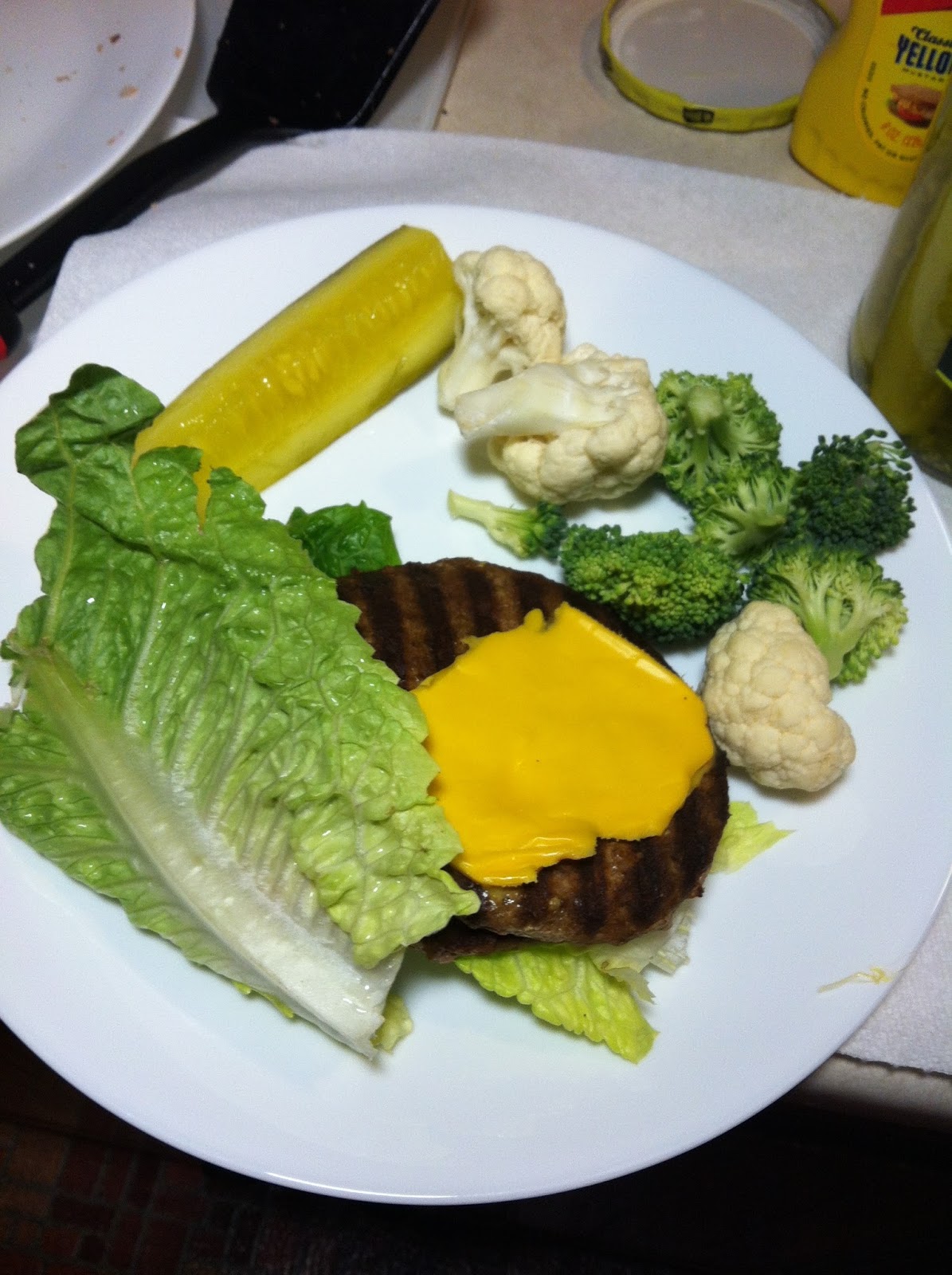Totally spur of the moment, as soon as I started cooking dinner last night I thought I ought to show you guys this awesome burger. A burger might not be what comes to mind when you think "healthy," but if it's a burger you crave, here's how you make it better.
The Meat
This is your meal's source of protein, so you want it to be as clean and lean as possible. A ground chuck burger (what you'll get at a restaurant) is 70-80% lean, at best. Opt instead for 96% lean ground beef or ground sirloin, which has a lower fat content.
Even leaner are ground turkey burgers. Jennie O extra lean fresh (not frozen) ground turkey is rated highest on Fooducate. Jennie O turkey burgers are next in line, getting a B+. Ground chicken is also an option. Tonight we made Jennie O turkey burgers.
Frozen Burgers
Watch for fat content, fillers, additives and sodium content in frozen burgers, most of them are crap. If you're into frozen burgers, Trader Joes has an amazing selection of hormone/antibiotic free frozen bison, beef, chicken, salmon, and turkey burgers.
Condiments
A burger isn't a burger without something on it. Mustard is always an acceptable condiment, but ketchup, cheese, and mayo will all sabotage your diet.
Ketchup: Use Simply Heinz instead of regular ketchup because it has no high fructose corn syrup.
Cheese: Fat free cheeses are full of chemicals, but sim or low fat cheeses aren't, since they're just made with skim milk. Opt for a cheese that's low in fat.
Mayo: If you're trying to lose weight, mayo isn't going to do you any favors. But, if you're going to use it, use this:
It's got half of the calories and fat as real mayo, and olive oil is a healthy fat.
The Bun
As for the bun, don't use one! Two pieces of romaine lettuce instead of a bun will save you at least 100 calories, extra carbs and sugar.
If no bun seems like blasphemy, try it on a sprouted grain wrap. (Ezekiel tortilla).
If you're feeling really saucy, make a burger salad with ketchup and mustard dressing.
Blasphemy, I know.
Serve it with a side of fresh veggies and viola, a healthier burger. This was one of my lower carb days, so I didn't add any carbs other than my veggies. If you need carbs, add that sprouted grain wrap, some brown rice, or a baked sweet potato.
The pickle really makes the burger for me. I usually dip my few veggies in Opa Greek Ranch, too.
A healthy burger and healthy ranch dressing. Who'da thought.
We keep basically a raw veggie tray in our fridge at all times. Sometimes there's some cheese cubes in there too (I like Colby Jack because it's low lactose). You should be eating raw veggies every day, so if you're not already doing this, get on it! :)







